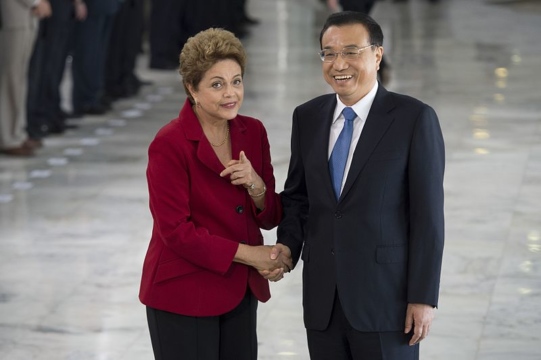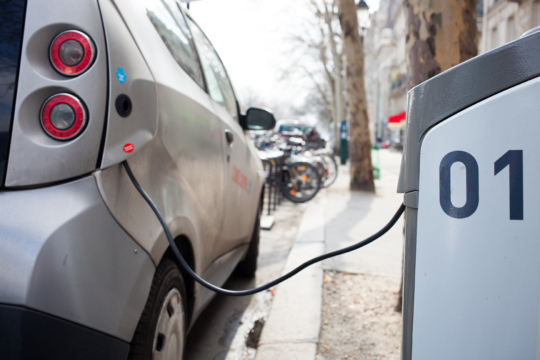
¿Qué le falta a Bogotá para masificar el carro eléctrico?
“La industria automotriz en el país ha sido conservadora, teniendo en cuenta la responsabilidad de aproximar, facilitar y promover el uso de las nuevas tecnologías”
“La industria automotriz en el país ha sido conservadora, teniendo en cuenta la responsabilidad de aproximar, facilitar y promover el uso de las nuevas tecnologías”
Electric vehicles are a critical part of a clean transport agenda, but strong policy incentives are needed to promote widespread EV adoption in Latin America.
At a breakfast meeting with members of the Inter-American Dialogue’s Energy and Resources Committee, Michael Reid, The Economist’s senior Latin America editor and author of the “Bello” column, discussed why he thinks the region is shifting to the right.
Peace in Colombia promises to bring many environmental benefits to the country, but also poses environmental risks .
How the State Wrecked the Oil Sector—and How to Save It
The collapse in global oil prices has led to a steep decline in investment in Colombia’s hydrocarbons sector and reduced the value of its oil exports, depleting a key source of government revenue.
The election of President Mauricio Macri may signal the start of a new era in Argentine energy policy and cooperation with the United States, but the new government still faces challenges to increasing oil and gas production and erasing energy subsidies.
As Latin American countries reassess their energy policies in light of lower oil prices, there is an opportunity to apply lessons learned from the US experience to enact regulations that mitigate environmental risks, strengthen public support, and attract investment.
As global oil prices collapsed over the last two years, regional governments have started to lose their leverage in the energy industry. To attract international investors, they must offer increasingly favorable terms, which means ceding more of their own control.
In the wake of the COP21 global climate talks, governments must shift attention to how they will actually follow through on the commitments made in Paris. One concept is central to achieving that goal – innovation.
Though the COP21 negotiations promise to be complex, they also present an opportunity for the region to address existing vulnerabilities.
To remain competitive, Brazil will have to revise its regulations and reverse many of the reforms instituted just a few years ago.
The hydrocarbons sector is at a turning point. Low prices and uncertain projections, competition for market share, geopolitical dynamics, growing environmental and social concerns, and questions about the future of fossil fuel and renewable energy sources necessitate analysis and discussion about the present and future of the industry and the challenges…
Have any countries in Latin America been particularly successful at diversifying their economies?
What does China stand to gain from investing in Latin America’s energy projects? Where is China looking next in the region?
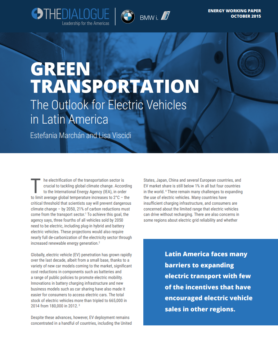





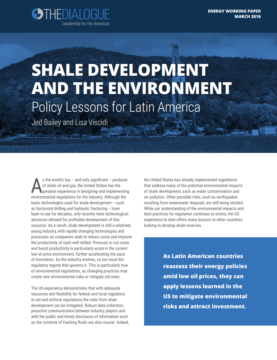

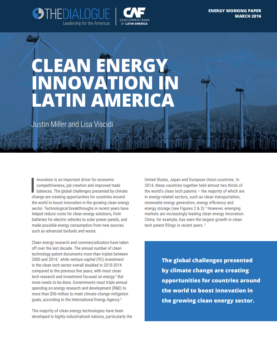 Video
Video




